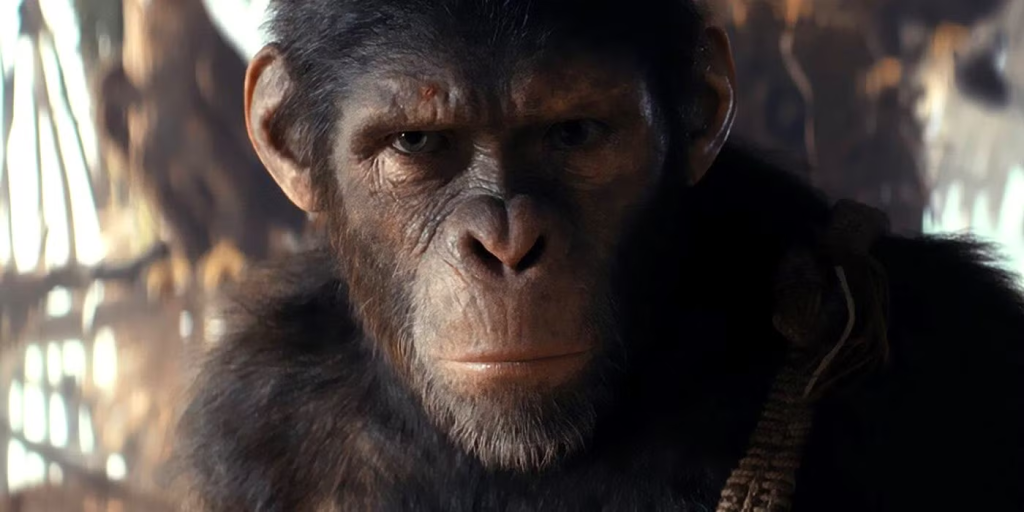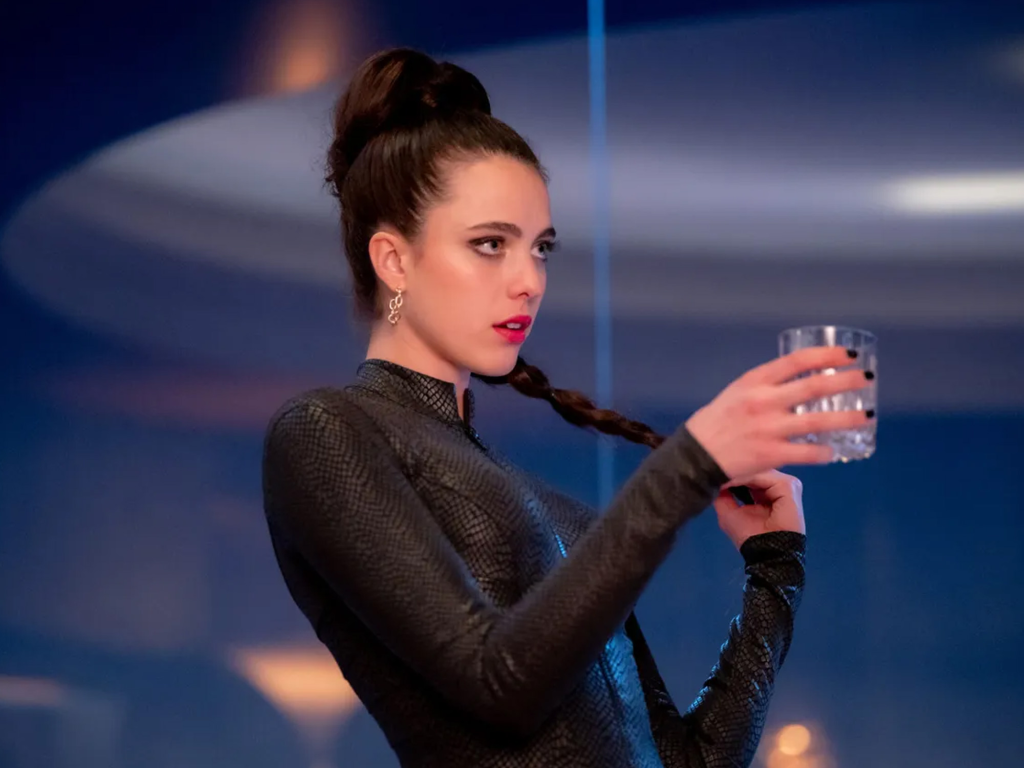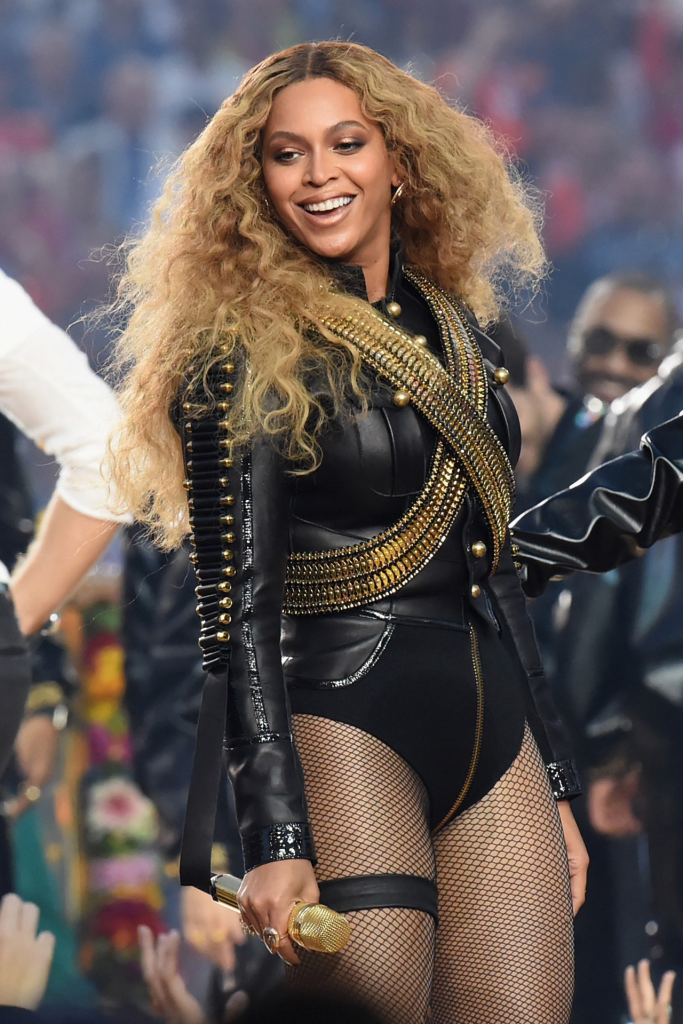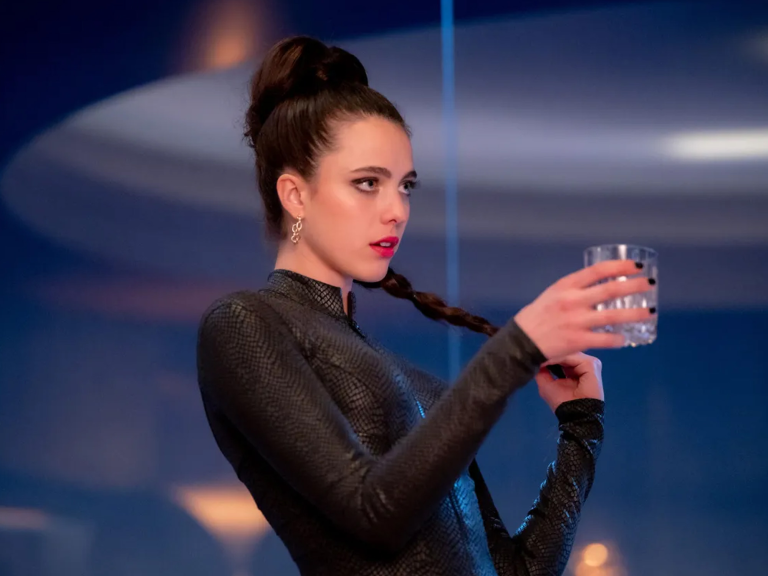Although Andy Serkis’ iconic character Caesar is missing from Kingdom of the Planet of the Apes, his influence is still very much felt. Since making his debut in 2011’s Rise of the Planet of the Apes, Caesar has been the heart of the franchise—a brave chimpanzee who led his fellow apes to victory against humans. Now, in the fourth installment of the reboot, Kingdom of the Planet of the Apes (set to release on May 10), we jump forward centuries after Caesar’s death. His lessons still resonate, but a new hero emerges to carry on his legacy.
Set about 300 years after Caesar’s passing, the film introduces Noa (played by Owen Teague), a young chimpanzee living in a post-apocalyptic world. Noa’s family lives in a secluded village led by his father, Koro (Neil Sandilands), where apes have embraced farming and falconry. Noa’s first scene shows him fearlessly swinging through the treetops in search of an eagle egg that he’ll raise and train. However, their peaceful existence is soon interrupted when a group of hostile, mask-wearing apes, including gorillas and chimps on horseback, attack their village and capture its residents. Now, it’s up to Noa to rescue his family and friends from these invaders.
By Noa’s time, most apes either revere Caesar or have forgotten him entirely. Noa belongs to the latter group. As he wanders through the wilderness, he meets Raka (Peter Macon), a wise, solitary orangutan who teaches him about Caesar’s philosophy of peace, justice, and unity—values that reject ape-against-ape violence. With Raka as his mentor, Noa embarks on a dangerous journey through ruined cities and overgrown airports in a quest to reunite with his clan.

During his travels, Noa encounters a mysterious human girl, later named Nova (Freya Allan). At first, Nova appears to be a primitive, mute creature, typical of humans in this era. But Noa soon realizes that Nova might be hiding secrets of her own, adding complexity to their growing bond.
Their journey leads them to a war camp run by Proximus Caesar (Kevin Durand), a power-hungry bonobo who has crowned himself as Caesar’s heir. Proximus is a ruthless leader who, with the help of a scheming human (William H. Macy), uses electricity-powered cattle prods to enforce his rule and plans to rid the world of humans once and for all.
As with the previous films, Kingdom of the Planet of the Apes explores deep themes about human (and ape) nature. Noa’s exposure to Proximus Caesar’s brutal, authoritarian regime forces him to confront the darker sides of power and violence. While the film touches on themes like fascism and how opportunistic leaders can manipulate history for their gain, it doesn’t delve too deeply into these issues, leaving them largely unexplored. The film also struggles with pacing, especially in the third act, where the plot feels weighed down by its long runtime.
However, the earlier parts of the film shine, particularly Noa’s journey through the wilderness. Teague brings an emotional depth to Noa, making him a relatable and compelling hero. Whether he’s scaling cliffs or sharing a quiet meal with Nova by the fire, his journey is a captivating survival story. Director Wes Ball does a great job capturing the lush, post-apocalyptic world, and his attention to detail creates a rich and immersive setting. If his work on Kingdom is any indication, his upcoming adaptation of The Legend of Zelda could have the same sense of wonder and adventure.
Overall, while Kingdom of the Planet of the Apes doesn’t quite match the thematic depth of its predecessors, it delivers a thrilling, visually stunning adventure with an engaging new hero.










